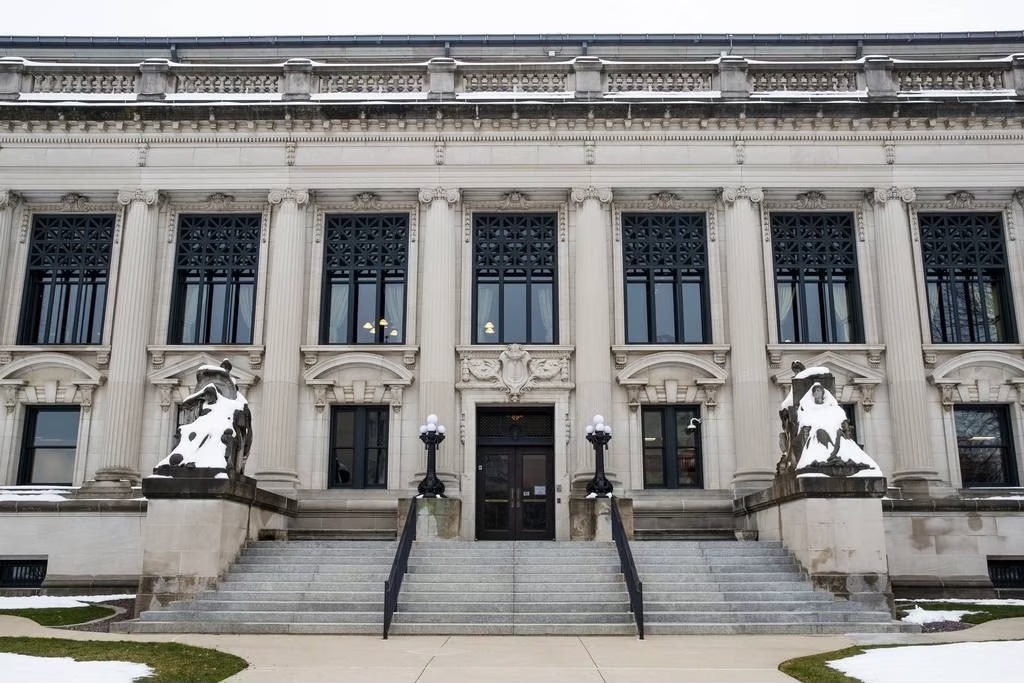By Illinois Review
In an ultimate power grab being dubbed as a “referendum,” Orland Park Mayor Keith Pekau, still distraught from his embarrassing defeat in his bid for Congress, is on a power trip to expand his mayoral power and salary now that he’s stuck in his role as mayor for the next two years.
In 2017, Keith Pekau ran for Village President of Orland Park on a single issue: reduce his salary from $150,000 to $40,000.
And his logic was simple.
Orland Park is a council-manager form of government where the Village Board of Trustees employs a full-time Village Manager to handle the day-to-day, and therefore there is no legitimate need to pay the head of the Board, the Village President, a six-figure salary.
But there was an escape plan.
Pekau would run for Congress and would get the Congressional salary of $174,000 – a salary far bigger than anything Pekau had ever collected before.
But Pekau would lose his bid for Congress by more than 9 points. And it was a blowout that few saw coming – including Pekau.
During his concession speech, a still shell-shocked Pekau appeared distraught, disorganized, combative and angry as he read from hastily scribbled notes on his own campaign cards.
And so it was no surprise to those that know Pekau, that a few months after the election – and only after it was confirmed that his own hand-picked trustees were not going to be challenged in the April 4th election, did he unveil his latest surprise: a referendum to convert Orland Park from its council-manager style of government to a mayor-council style of government like Chicago or Aurora.
During a standing room only community meeting on Thursday evening hosted by Vote Yes Orland, a local ballot initiative committee registered with the Illinois State Board of Elections, over a hundred Orland Park residents stood alongside Vote Yes to publicly express their opposition to Pekau’s power grab.
During one exchange, a resident asked Jason Grant, the guest speaker and representative of the International City/County Management Association (ICMA),
“In your experience, why would a mayor want to move away from a council-manager form of government to a mayor-council form of government?”
Grant’s answer, which drew laughter from the room, was very interesting.
“We don’t see the shift from council-manager to mayor-council very often, as the trend is the opposite direction. But when we do see a shift to the mayor-council form of government, it typically is when the mayor has greater political ambitions. We have seen instances where a mayor of a village that is central to a congressional district use those expanded mayoral powers to be a louder voice in the district to set him or her up for a future congressional race or even a gubernatorial run.”
Grant, unaware that Pekau had just ran for Congress, and had higher political aspirations, described Pekau perfectly without ever meeting him, simply by analyzing the types of people who want to change the form of government from council-manager to mayor-council.
Orland Park, a village of just over 50,000 residents, has been a council-manager form of government since 1983. That managerial style relies on a full-time Village Manager who reports directly to the Village Board of Trustees, of which the Village President is the chair.
Orland Park’s current Village Manager has held that position since 2019, after Pekau pushed out the former Village Manager.
The current Village Manager recently became a finalist for the Village Manager position in Janesville, Wisconsin.
But elevating the Village President position to that of a full-time, Chicago-style mayor, and by effectively eliminating the need for a full-time Village Manager, Pekau would be set to reclaim his former $150,000 salary, and the pension perks that come with it.
It would also give Pekau virtually unlimited power in Orland Park.
In Chicago, which has a mayor-council form of government, Mayor Lori Lightfoot has enormous power and influence over city matters. She even has a full-time security detail.
During the pandemic, Lightfoot exercised her powers and instructed the Chicago Police Department to quietly create a special unit of over 70 police officers to protect her home and office – in addition to the 20 police officers that were already part of her security detail.
Under a mayor-council form of government, Pekau could do the same, instructing the Orland Park police chief to quietly assemble a special unit of officers to provide full-time protection – including a motorcade of SUVs, officers at his home and office, guarding him around the clock, no matter where he is.
In addition to having the power to assemble his own security detail, Pekau would also have the power to intervene on any city-wide matter.
In Aurora, for example, which also has a mayor-council form of government, Mayor Richard Irvin exercised his powers to intervene at the “scene of an arrest by Aurora police in which his then-girlfriend was accused of hitting a security guard at a marijuana store.”
The Chicago Tribune reported an officer overhearing Irvin, who rushed to the scene after his girlfriend called him, that her charges “would be taken care of.”
Under a council-manager form of government, neither Lightfoot or Irvin would have the power to assemble special police units or rush to the scene of an alleged crime to literally have the police un-arrest his girlfriend.
A council-manager system keeps the mayor accountable. A mayor-council gives the mayor expansive powers – and can usher in corruption at the highest levels.
As the saying goes, “power corrupts and absolute power corrupts absolutely.”









